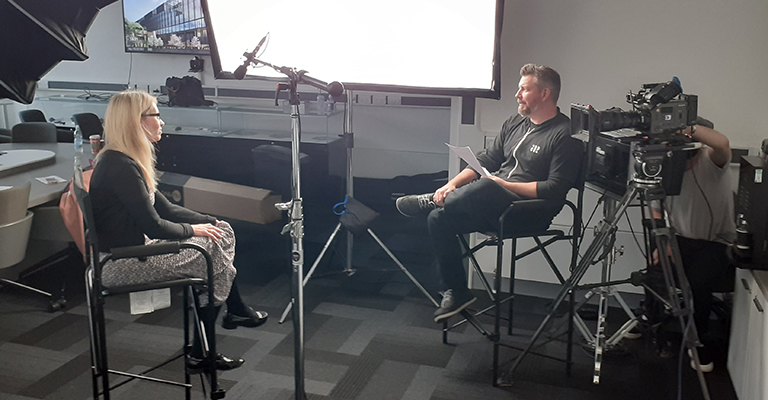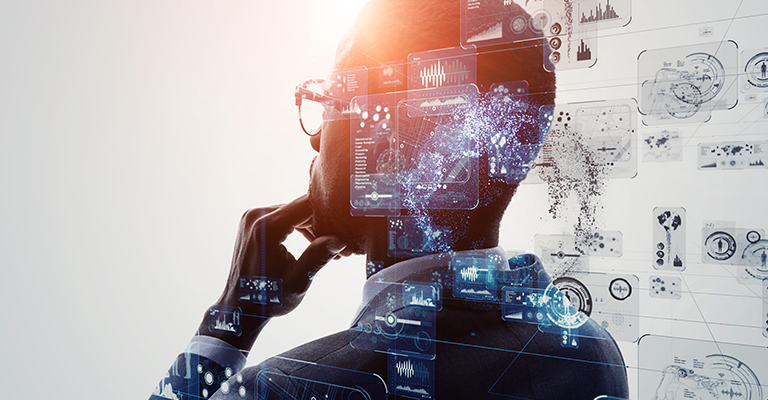“Science fiction presents the most wonderful platform to explore and show almost everything today,” says Ridley Scott, Hollywood director and executive producer of hit sci-fi series Raised by Wolves.
However the HBO Max show, which follows two android parents raising human children as their own, is based, ultimately, on science fact – and includes the very latest thinking in artificial intelligence (AI) and robotics.
In a special Raised by Wolves Science Fact trailer made to accompany the programme, Professor Aline Miller of The University of Manchester, which has built a modern reputation of excellence in AI and data science, joins a panel of international experts and scientists to explain how the future of smart bio-machines might develop…
^Watch the Raised by Wolves Science Fact trailer from Showmax.
Put to the test
Professor Miller, a biotech specialist in the Department of Chemical Engineering and the Manchester Institute of Biotechnology, believes it would be very optimistic to expect artificial lifeforms will ever truly experience human-like emotions.
However, their ability to apply sophisticated machine learning technologies to imitate human emotions and behaviours might – in fact – mean they are able to pass a version of the Turing Test.
First devised by Manchester computer pioneer Alan Turing (whose 110th birthday falls on the 23rd of this month (June)), the Turing Test is a method to determine whether a machine can be recognised as ‘intelligent’ by demonstrating human-like thinking and behaviours.
Originally called the Imitation Game, the concept has had a significant influence on the development of AI and associated technologies.

To err is… human?
Professor Miller, whose current research interests lie at the life-science interface with emphasis on applying physical principles to mimic, manipulate and improve biomolecular self-assembly, says: “Artificial lifeforms can surpass some of our human characteristics. For example, such lifeforms can develop higher speeds and accuracy of execution and also exhibit a higher tolerance to tedious and monotonous tasks.
“Artificial lifeforms can also observe and learn to react to different situations – but whether they can learn to feel, have empathy and develop ‘human-like’ intuition and instinctive behaviour remains an open question, and I believe would require a quantum leap in the development of AI-powered robots.
“Although I think it would be difficult for an artificial lifeform to exhibit signs of being self-aware, I think it is still possible. Such a system would definitely still be artificial – but I think it will become increasingly more difficult, for us as humans, to distinguish between what’s artificial and what’s not.”

Keeping it real?
Professor Miller believes the way humans have developed and acquired knowledge over years through real-world experiences is in contrast to artificially developed intelligence. There is, she argues, an extensional tension between the two systems.
“I believe humans can only become better at what they do by making good decisions, or by making bad decisions and making mistakes, essentially learning through cause and effect. Such an approach builds an innate ability to respond to real-world scenarios and enables rational decisions to be made.
“AI-powered robots are not yet able to develop such deep learning and level of complexity, hence are not able to respond to unknown or unseen scenarios with the same level of logic, experience or reasoning. That’s the risk when you bring together human intelligence and artificial intelligence.”
Since its premiere in September 2020, Raised by Wolves has been highly praised and two series have now been screened globally, with the Science Fact trailer accompanying the second.
The complex and multi-layered narrative of the show deals with big themes, such as religion and faith, the concept of sentience, immigration and artificial life.
It also poses big questions; ones that can only be answered in time.
Whatever the future holds for AI, one thing’s for sure – it’ll be a fascinating watch.
If you enjoyed this post, be sure to subscribe on our homepage to keep up to date with the latest posts from The Hub.
Words: James Tallentire, Joe Shervin
Video: Showmax
Images: Shutterstock, The University of Manchester
